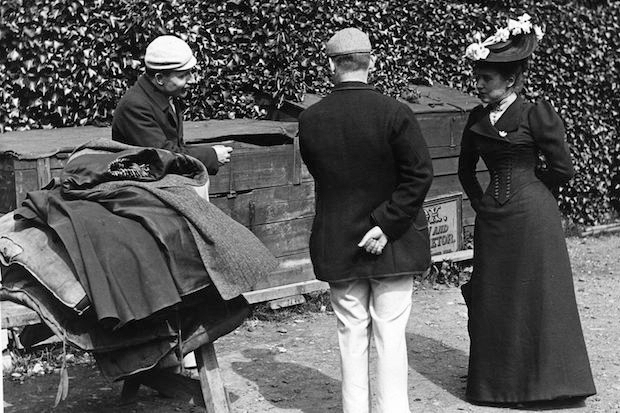From ‘Favourite Hours’, The Spectator, 19 June 1915:
On a Sunday the Church and the world agree, and declare together that the distinctions between master and servant are merely matters of expediency involving no principle, and those who will not listen to the one can hardly avoid hearing the other. By the by, the persons who airily declare that you “never see any poor people in church” immensely overstate the truth, deceived by the fact that very few people look poor on a Sunday—in the country literally no one. Again, the fact that the majority of people have a good dinner on Sunday is a great safeguard against class bitterness. Of course, from the strictly common-sense and logical point of view, it might be better if the money which goes in Sunday clothes went to improve the quality of workaday garments, and if the money spent on Sunday meals were spent on better dinners daily ; but most Englishmen of all classes would rather be very comfortable sometimes than a little less uncomfortable always. Again, the natural vanity of the young must have a recognized outlet. Young people must seek to please one another by dressing up, and one day in seven is not too much to give that instinct play. We are constantly being told by the strangers now in our midst that London looks dreary on Sunday with its black shop-fronts. Long may they remain black! Looking at shop-windows is a pleasurable occupation to all normally constituted women, but shop-windows are now so huge, so varied, and so beautiful that the chief shopping streets are turning into exhibitions, and with a great many women shop-gazing threatens to become a mania. It is more than desirable that such should be deprived of their amusement at regular intervals. Their minds become wholly obsessed with the thought of merchandise, and the peace-destroying quality of covetousness is intimately connected with plate-glass.






Comments